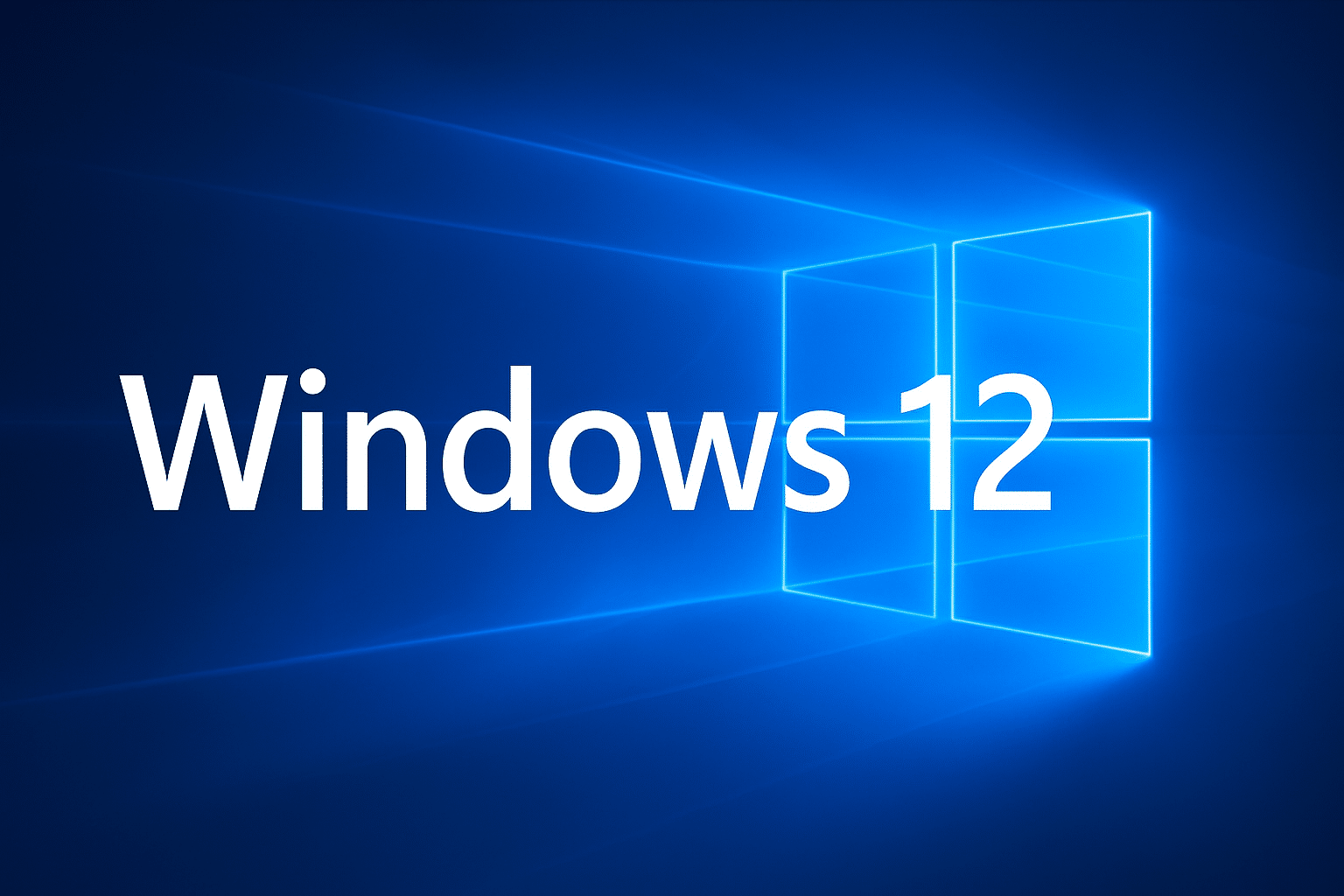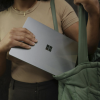The Ultimate Windows 12 Guide
Windows 12 Release Timeline
Windows 12 has been officially confirmed by Microsoft and is currently in active development. While no exact launch date has been announced, insider reports point to a release window in late 2025, keeping with Microsoft’s usual autumn rollout cadence.
💡 Is Windows 12 out yet?
Not yet. No public preview or retail build is available at this time.
💡 Is Windows 12 confirmed?
Yes — Microsoft executives and major OEM partners have publicly acknowledged the next-gen OS and its ongoing development.
🕒 When is Windows 12 coming out on PC?
Expect pre-installed Windows 12 devices and upgrade prompts to appear by Q4 2025; enterprise channels may see early access slightly sooner.
Quick Summary for Release-Related Searches
- “When is Windows 12 coming out?” → Expected late 2025
- “When will Windows 12 be released?” → Likely Q4 2025
- “Is Windows 12 available / out?” → Not yet; still in development
- “Is there going to be a Windows 12?” → Yes, officially confirmed
- “When is Windows 12 expected?” → All signs point to late 2025
Upgrade Paths & Pricing
Microsoft is widely expected to offer Windows 12 as a free in-place upgrade for eligible Windows 11 devices, delivered via Windows Update. Users on unsupported hardware, or those building new PCs from scratch, will need to purchase a license.
Compared to official pricing, buying a license from trusted resellers can save you significantly. For example, the Windows 12 Home edition has an official retail price of £169.00 (approx. $212.53), but is available from us for just £14.95 (approx. $18.80).
Similarly, the Windows 12 Pro edition normally costs £219.00 (approx. $275.41), yet you can get it through us for just £19.95 (approx. $25.09).
💡 Will Windows 12 be subscription-based?
No — Microsoft has given no indication of moving consumer editions to a subscription model; traditional one-time licenses remain.
💡 How long will Windows 12 be supported?
Expect roughly 5 years of mainstream support plus 5 years of extended security updates, stretching well into the 2030s.
Quick Summary for Upgrade & Pricing Queries
- “Will Windows 12 be a free upgrade?” → Yes for most Windows 11 PCs
- “How much does Windows 12 cost?” → See discounted pricing above
- “Will Windows 12 be subscription based?” → No
- “When will Windows 12 support end?” → Likely after 2035
System Requirements & Performance
While Microsoft has not released final specs, early reports suggest that Windows 12 will raise the hardware bar slightly compared to Windows 11. A modern processor, TPM 2.0 chip, and SSD are expected to remain baseline requirements.
💡 How much RAM will Windows 12 need?
Although official specs are pending, most sources indicate a minimum of 8 GB RAM will be required — up from 4 GB in Windows 11. For smooth multitasking and futureproofing, 16 GB or more is recommended.
💡 What are the requirements for Windows 12?
Expected minimum specs include:
- 64-bit dual-core CPU (Intel 8th Gen / AMD Ryzen 3000 or newer)
- 8 GB RAM
- 64 GB storage (SSD strongly recommended)
- UEFI firmware with Secure Boot enabled
- TPM 2.0 module
- DirectX 12-compatible graphics with WDDM 2.0 driver
💡 Will Windows 12 be better than Windows 11?
Early builds show improved AI integration, faster boot times, and deeper cloud sync features — making Windows 12 feel more responsive and intelligent than its predecessor.
💡 Does DirectX 12 work on Windows 7?
DirectX 12 requires newer OS infrastructure. While some game engines have implemented partial DX12 support on Windows 7, it’s unofficial and limited. To fully benefit, Windows 10 or newer is strongly recommended.
Quick Summary for Performance Queries
- “What are the requirements for Windows 12?” → Modern CPU, 8 GB+ RAM, TPM 2.0, SSD
- “How much RAM will Windows 12 need?” → 8 GB minimum, 16 GB recommended
- “Will Windows 12 be better than 11?” → Yes — especially in speed, UX, and AI
- “Does DirectX 12 work on Windows 7?” → Partially, but not officially supported
What’s New in Windows 12
Windows 12 is expected to introduce several cutting-edge improvements that push Microsoft’s operating system into a more AI-integrated, cloud-synced future. While not all features are final, leaked builds and insider previews reveal some exciting developments.
- AI-powered desktop environment – Windows 12 will likely debut a more intelligent interface powered by onboard and cloud-based AI. From live captions to context-aware actions, Microsoft is pushing hard into hybrid computing.
- Revamped taskbar and widgets – A cleaner, modular layout is in testing, letting users pin widgets, news, weather, and system shortcuts more fluidly than in Windows 11.
- Better multi-monitor and snapping tools – Enhancements to window docking and layout memory are expected to improve workflow for power users.
- Deeper cloud sync – Settings, files, and even layouts may sync across devices more automatically — useful for hybrid workers and students.
💡 What is new in Windows 12?
The headline additions include a smarter desktop, real-time AI features, better personalization, and behind-the-scenes performance optimizations. Windows 12 aims to feel more adaptive, lighter, and more helpful out of the box.
💡 Who is the brand ambassador of Windows 12?
As of now, Microsoft has not officially announced a public-facing brand ambassador for Windows 12. However, high-profile keynote presenters like Panos Panay have often served as the face of Windows launches in recent years.
While you’re getting ready for Windows 12, don’t forget to buy product keys for Microsoft Office — the ideal companion for getting the most out of any new Windows release.
Windows 12 Home vs Pro
Just like previous releases, Windows 12 will be available in two core editions for most users: Home and Pro. Both offer the same streamlined interface, security features, and performance upgrades — but there are some key differences.
Feature Comparison: Windows 12 Home vs Pro
| Feature | Home | Pro |
|---|---|---|
| Core Windows Experience | ✔️ | ✔️ |
| BitLocker Device Encryption | ❌ | ✔️ |
| Group Policy Management | ❌ | ✔️ |
| Remote Desktop Host | ❌ | ✔️ |
| Business Use / Domain Join | ❌ | ✔️ |
For most personal users, Windows 12 Home is the ideal starting point. Professionals, IT admins, or freelancers may want the added control and security tools found in Windows 12 Pro.
Still on an older version of Windows? You can buy a Windows 10 Home license if your device doesn’t meet the upgrade requirements but you want a stable and supported OS today.
How to Get, Download & Install Windows 12
Once Windows 12 is officially released, users will have several ways to access it — whether upgrading from a current version or performing a fresh install.
💡 How to get Windows 12
The simplest way to get Windows 12 will be through a free upgrade via Windows Update — provided your device meets the system requirements.
💡 How to download Windows 12
Microsoft will also offer ISO files and a new version of the Media Creation Tool on their official website for those who prefer clean installations.
💡 How to install Windows 12
You can either upgrade your current system or do a clean install using a bootable USB. For users starting fresh or switching PCs, we recommend downloading the ISO, creating installation media, and backing up your files first.
💡 How to upgrade Windows 11 to 12
If you’re already running Windows 11 on compatible hardware, you’ll receive a prompt to upgrade via Windows Update once your device is eligible. If you’re not on 11 yet, now’s a good time to buy a Windows 11 Home license key and get your system ready.
Quick Tips for Using Windows 12
Windows 12 introduces a fresh look, new AI features, and improved productivity tools — but the basics are still essential. Here’s a quick-reference table of common how-tos that new users often ask:
| Action | How to Do It in Windows 12 |
|---|---|
| Take a screenshot | Press Win + Shift + S to open Snipping Tool; or use Print Screen for a full screen shot. |
| Access Settings | Click the Start menu > Settings, or press Win + I. |
| Switch between desktops | Use Win + Ctrl + Left/Right arrows to toggle virtual desktops. |
| Launch the new AI assistant | Click the AI icon in the taskbar or use Win + A (feature availability may vary by device). |
| Check system specs | Settings > System > About — useful to confirm your PC meets Windows 12 requirements. |
If you’re still running an older OS and want to get used to the new layout now, you can buy a Windows 11 Pro license key and start preparing your device today.
Should You Upgrade to Windows 12 — or Wait?
Thinking about upgrading to Windows 12 the moment it drops? Here’s a quick overview of who should jump in early — and who might want to hold off a bit.
👍 Upgrade Early If You…
- Have a modern PC that meets all system requirements
- Want the latest AI-powered features and UI improvements
- Need advanced cloud integration and device syncing
- Are comfortable troubleshooting early bugs or compatibility issues
⏳ Wait a Bit If You…
- Rely on older apps or peripherals that may not be compatible
- Use mission-critical software without guaranteed Windows 12 support
- Prefer to wait for the first major update or bug fixes
- Have a PC running Windows 10 or 11 with no issues
💡 Should I upgrade to Windows 12?
If your hardware is ready and you like exploring new tech, the upgrade will be worth it — especially for productivity and AI enthusiasts. But cautious users might benefit from waiting until early adopter feedback rolls in.
💡 Should I wait for Windows 12?
Waiting is a safe and smart move for most casual users. Microsoft will continue supporting Windows 11 for years, and early bugs are almost guaranteed during the first rollout phase.
Windows 12 FAQ
+ Is Windows 12 in development?
Yes, Windows 12 is officially in development and has been confirmed by Microsoft and several major hardware partners. Insider builds and leaks have shown early prototypes of the system.
+ Is Windows 12 going to be free?
For eligible devices running Windows 11, Windows 12 will most likely be a free upgrade. However, users with unsupported hardware or custom-built PCs will need to purchase a separate license.
+ Is Windows 12 confirmed?
Yes, Microsoft has confirmed Windows 12 is in the works, though exact details about the final feature set and release date are still under wraps.
+ How to upgrade to Windows 12?
Once officially released, you’ll be able to upgrade through Windows Update — just like previous versions. Compatible devices will be notified automatically when the upgrade becomes available.
+ When will Windows 12 support end?
Based on Microsoft’s support lifecycle policies, mainstream support for Windows 12 is expected to last around 5 years, with extended security support continuing for an additional 5 years after that.
+ Will Windows 12 be subscription based?
No, consumer editions of Windows 12 will continue to use the traditional one-time license model. Microsoft 365 services remain subscription-based, but Windows itself does not require ongoing payments.
+ What are the system requirements for Windows 12?
Expect a minimum of 8 GB RAM, a TPM 2.0 module, Secure Boot support, and a modern 64-bit CPU. Full official requirements will be confirmed closer to release.
+ Will Windows 12 be better than Windows 11?
Early testing shows improved speed, stability, AI features, and UI design — all aiming to outperform Windows 11 in everyday use and productivity.












